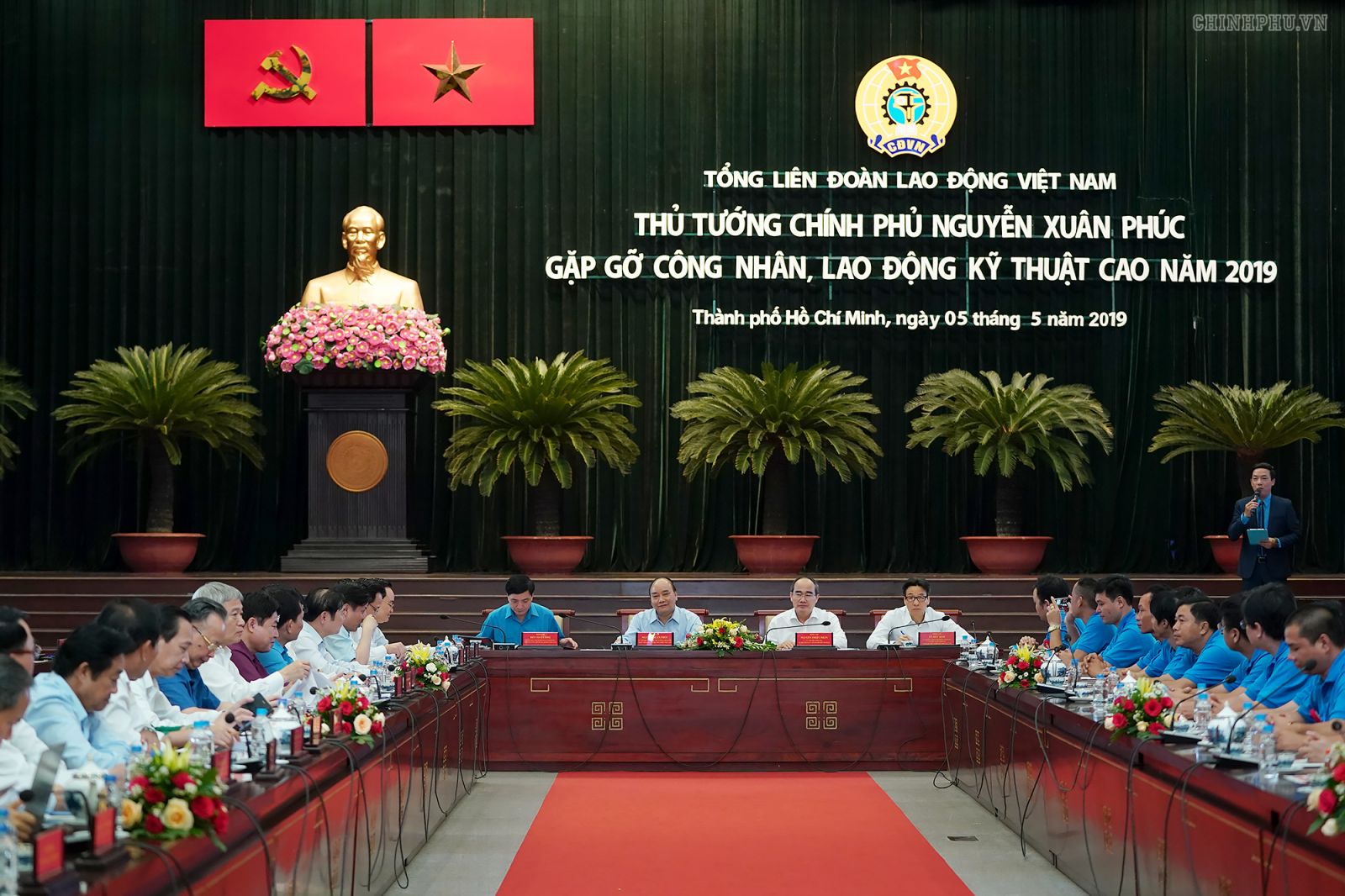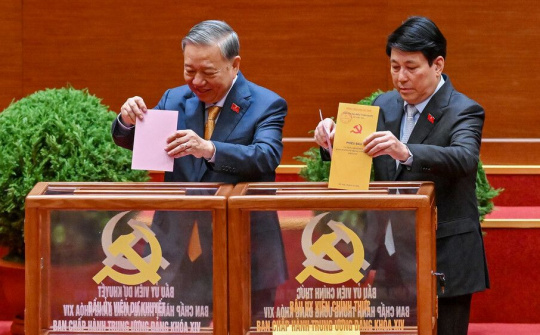VNHN – Highly-skilled workers create a chance for the competitive development as Vietnam is intensively and extensively integrating into the world economy, Prime Minister Nguyen Xuan Phuc stressed at a dialogue in Ho Chi Minh City on May 5 with representatives of workers.
Speaking at the 4th edition of the annual meeting, which gathered workers from seven localities belonging to the country’s key economic region, the Government leader further said that the national development does not rely only on capital, cheap labour but also production capacity.
Highly-skilled workers are a national treasure as they serve as a locomotive for the economic development and attract foreign investors. However, they account for only less than 19% of the total workforce and ministries must work out concrete policies to improve this, he pointed out.
Workers’ representatives held that vocational training is yet to catch up with the technology development. As a result, most of the workers have not received proper training and the vocational training has yet to meet the requirement of a competitive labour market.

A general view of the dialogue between the PM and highly skilled workers. (Photo: VGP)
Minister of Labour, Invalids and Social Affairs Dao Ngoc Dung said his ministry advocates conducting vocational training in line with the need of the labour market, focusing in the fields the society needs, not what the ministry is having. It is also intensifying the connection between training and enterprises that will employ the workers.
For his part, Minister of Education and Training Phung Xuan Nha laid a stress on the connection and highlighted that his ministry advocates increasing the forms of training, aiming to raise the foreign language command and professional skills for workers.
Meanwhile, a representative of the employers pointed to the fact that new recruits cannot start working immediately but need from one to two years for further training.
Concluding the dialogue, Prime Minister Phuc affirmed that the Government will continue to work out policies to raise workers’ salary and other welfares. He urged them to train themselves and keep training for the whole life, and ordered trade union organisations to pay more attention to the workers’ families.





